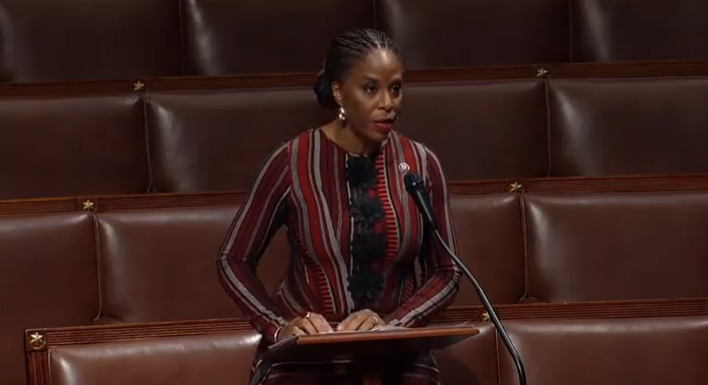
A House resolution co-sponsored by V.I. Delegate Stacey Plaskett received a landmark congressional hearing on Wednesday, proposing that the Insular Cases – a series of racist Supreme Court decisions that put residents of U.S. territories on a “separate and unequal” footing – be rejected.
The Insular Cases created “an unprecedented category of unincorporated territories” with limited constitutional guarantees in 1901, Plaskett testified, and its decisions were “explicitly informed by racist assumptions, describing territory residents as “fierce, savage and restless people.”
“The irony is profound,” Plaskett said, that the likes of Alexander Hamilton and Camille Pisarro were considered “absolutely unfit to be citizens because they could not comprehend American, Anglo-Saxon principles.”
The racial animus with which the Insular Cases were decided – by some of the same Supreme Court justices who ruled in a contemporaneous case, Plessy v. Ferguson, to justify Jim Crow and racial segregation – are reason to reject them, supporters of H. Res. 279 argued.
The only difference is that Jim Crow is no longer law, but Insular Cases doctrine is, Plaskett said.
The impact of the precedent-setting cases isn’t just academic, according to Equally American Founder Neil Weare, whose nonprofit advocates equality for the 3.5 million U.S. citizens living in territories.
The Insular Cases have been cited in current and recent cases to argue that Supplemental Security Income benefits should be denied to the blind or disabled if they are territory residents; that territory residents should not vote for president; that their Medicaid benefits should be capped; and that search and seizure that would be illegal elsewhere in the U.S. is okay in the territories, Weare said.
“Although the resolution is non-binding, it’s an important first step to disrupt a status quo that’s existed far too long,” he said.
Not all of the territories support the resolution in its entirety, however.
Representatives from America Samoa and the Northern Mariana Islands expressed concern about losing their ability to control property ownership based on native birth or descent. Although the ancient cultural practice has been diluted in recent years, it would not be allowed under the Constitution’s equal protections, they said.
The hearing came on the same day that the Biden administration announced the nomination of Gustavo Gelpí, to the U.S. Court of Appeals for the 1st Circuit in Boston. A San Juan native, Gelpi in 2011 wrote searingly of the mindset of the Insular Cases, using quotes from latter-day congressional leaders.
“… Asiatics, Malays, negroes and of mixed blood have nothing in common with us and centuries cannot assimilate them. They can never be clothed with the rights of American citizenship nor their territory be admitted as a State of the American Union,” one was quoted as saying.
Gelpi’s appointment fills the vacant seat of the late Juan Rafael Torruella, the first Hispanic jurist to sit on the first circuit, who likened the Insular Cases to “a regime of political apartheid.”
Michael Ramsey, a conservative constitutional scholar, agreed. “The Insular Cases are an abomination,” he wrote in 2020. “… The distinction between ‘incorporated’ and ‘unincorporated’ territories has no basis in the Constitution’s text or founding-era commentary.”
St. Croix attorney Semaj Johnson, a plaintiff in a federal voting rights case, Segovia v. United States, that did not prevail, applauded the hearing.
“Here we are for almost 100 years having no right to vote and the rest of the nation paying no attention to it,” Johnson said. “These hearings are an opportunity to right that. What’s exciting is that it’s the first time Congress is taking another look since these territories were acquired.”
After a vote by the House Natural Resources Committee, the resolution will move to the full House for consideration.
Prior to the Insular Case decisions, territories were given support and a pathway to statehood, Weare said. If the resolution passes, that case law would offer a framework going forward.
“Having the Insular Cases condemned is important to engaging the political process,” he said, “so each territory can be brought to the table to chart its path forward according to the will of its people.”


